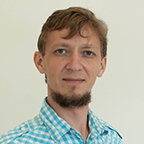- 13 Apr 2017
MEI Political Economy Cluster: The Development and Fragmentation of Kuwait’s al-Jama‘a al-Salafiyya
An academic discussion organised by MEI’s Political Economy Research Cluster.
Abstract: Starting from the 1970s, Kuwaiti Salafis set up an umbrella organization with sophisticated institutional structure (al-Jama‘ al-Salafiyya – JS) according to the template of the Muslim Brotherhood, in order to extend their influence in multiple segments of the society. Besides a charity wing, and multiple cultural and youth organizations, JS included a political arm (Salafi Islamic Gathering – SIG) in order to secure its presence in Kuwait’s parliamentary politics. Yet, as this article shows, unlike the Brotherhood, JS’s organizational structure proved rather inefficient. It’s members often disregarded its rules and the decisions made by its leadership. Furthermore, during the past decades JS went through a number of splits resulting a diverse Salafi landscape in the country. Most of time issues related to participation in Kuwaiti party politics caused the schisms within the ranks of Salafis. This article examines the organizational dynamics of JS and argues that specificities of the Salafi ideology explains its weakness institution building. Salafis are most often suspicious about formal organizations and argue that they lead to hizbiyya (partisanship), which makes Muslims loyal to their hizb (party, faction), and the leader of the hizb, instead of God. Furthermore, Salafis strongly disagree on the legitimacy of participating in parliamentary politics. This ideological stance explains why Salafis frequently split along the lines of opposing discourses and find it difficult to maintain strong and integrated institutional structures.
About the Speakers

Zoltan Pall is an anthropologist specialising in transnational Islamic movements in the Middle East and Southeast Asia. His main research topics include social movement theory, the structure and function of transnational networks, religious authority and sectarianism. His current research in MEI focuses on Salafism in Lebanon and its networking in the Arabian Gulf and Europe. Before obtaining his PhD from Utrecht University he was a Visiting Research Fellow at the International Institute for the Study of Islam in the Modern World (ISIM) in Leiden and a Research Fellow at Utrecht University. He has published articles on Salafism in Kuwait and Lebanon, and is the author of Lebanese Salafis between the Gulf and Europe: Development, Fractionalization and Transnational Networks of Salafism in Lebanon (2013).




